Point and Purpose: 'Dirty Harry' Gets Lucky
It may be an iconic scene but 'Dirty Harry's' iconic line doesn't really belong.
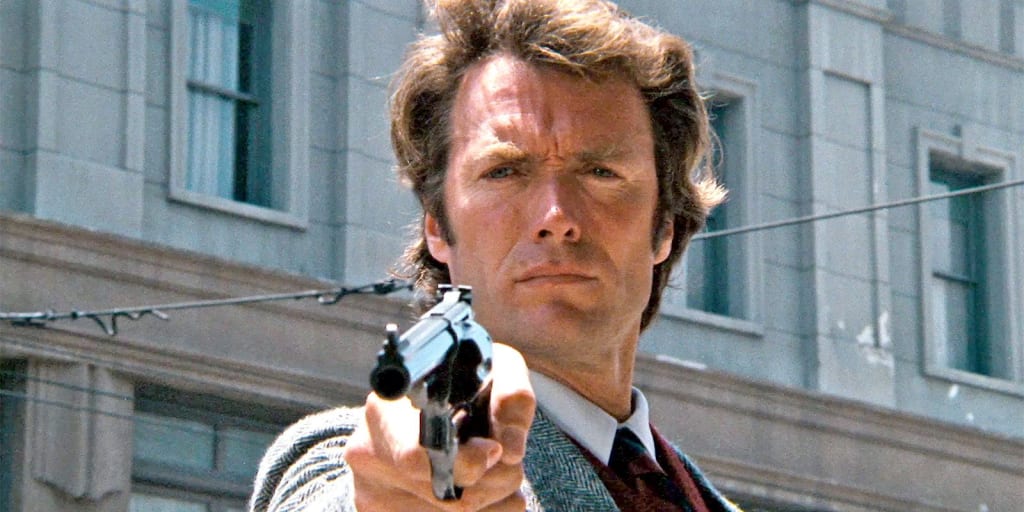
This week's classic on the Everyone's a Critic Movie Review Podcast is Clint Eastwood's 1971 cop movie, Dirty Harry. The film launched Eastwood as a bankable movie star and franchise head before such a thing even existed. And yet, the reason Eastwood became an icon, one line of dialogue that turned an otherwise unremarkable action movie into a beloved genre 'classic' is a scene that really doesn't belong in the movie.
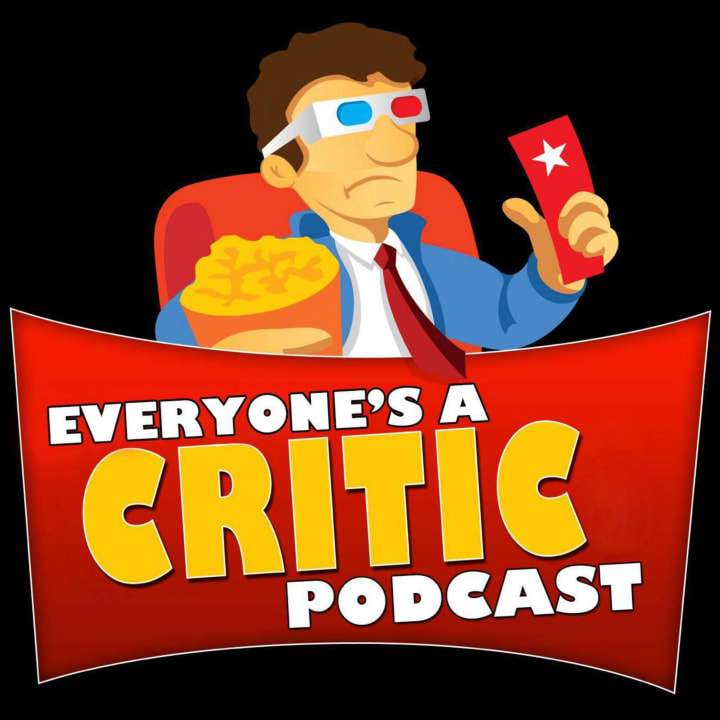
Dirty Harry, from 1971, is a landmark moment in the career of Clint Eastwood as a blockbuster movie star and in the portrayal of police officers on screen, specifically those cops who’ve had enough with the strictures of the law that keep them from actually stopping the supposed bad guys by any means necessary.
No one sequence better explicates this point than the bank robbery sequence in the first act of Dirty Harry. But I have a question for you, dear reader: What was the point and purpose of the bank robbery sequence and what did it add to the narrative of Dirty Harry?
Let’s set the table. Outside of a nearby bank, a man sits smoking a cigarette with the engine of his car running. He’s been here for some time as the camera pans down to show us a significant number of cigarettes piled on the ground outside the car.
Meanwhile, Detective Harry Callahan arrives at his favorite diner for his favorite meal, a foot long hot dog with lots of mustard.
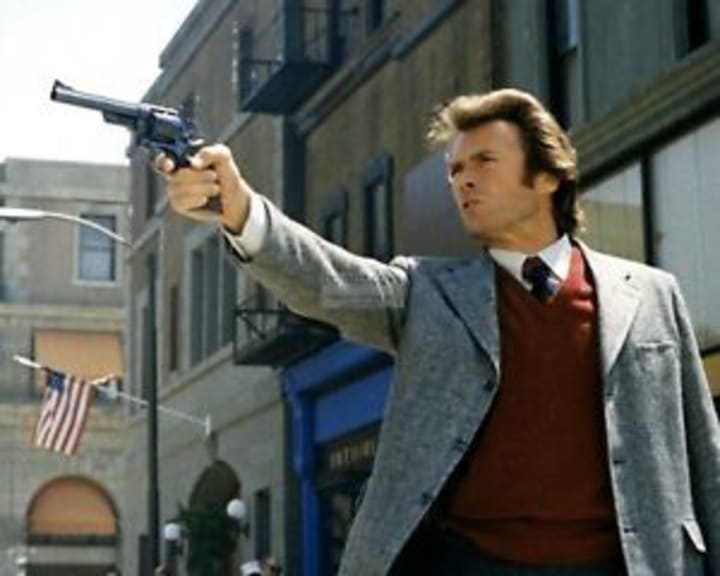
Callahan, being a supremely observant detective, noticed the cigarettes, though – clumsily - director Don Siegel gives us no sense of how Harry, from half a football field away, saw such a thing. Harry asks his favorite diner cook if the tan Ford is still outside the bank. The cook says it is. Harry asks if the engine is running to which the cook asks “How would he know?” Harry asks if there are exhaust fumes coming out the back.
The cook confirms that the car looks like a pollution hazard with all of the smoke coming from the tailpipe. Now, Harry turns to look at the car. If he was going to turn and look, why did he ask the cook to look for him? This grouping of wasted dialogue is specifically for us in the audience. Director Don Siegel assumes that if Harry recognizes a bank robbery and it’s not filtered through an exposition foil like the cook, the dumber audience members won’t get what’s happening.
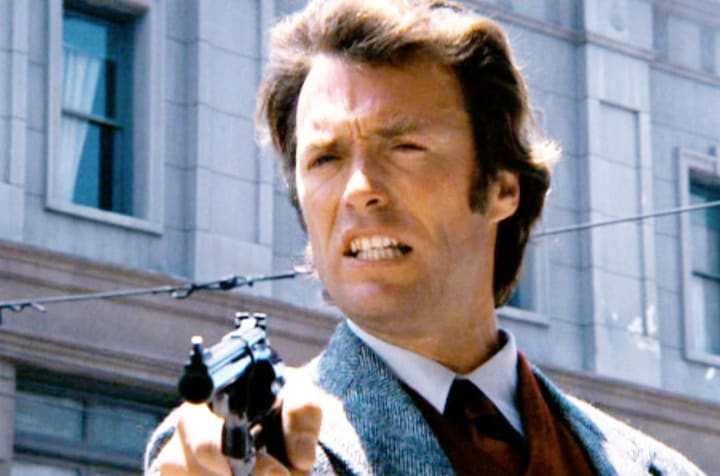
As Harry sits to await other officers that he’s instructed the cook to call, he finds himself thrust into action when the bank robbers emerge from the bank, guns in hand and ready to make a hasty getaway. Harry saunters out of the diner, calls for the robbers to halt. One turns to shoot at Callahan and Harry fires in retaliation. This is often forgotten in the long-term narrative of Dirty Harry. Those who embellish Harry’s shoot-first, talk-second attitude, neglect the fact that he didn’t shoot first in this iconic film moment.
Harry wings the first bad guy while the second leaps into the getaway car. Harry, still chewing his hot dog, fires at the car, striking and killing the driver who crashes into a curbside flower shop and the vehicle turns over. One of the men in the vehicle flees and Harry shoots him, sending him careening violently through a nearby plate glass window. As civilians scream in terror, Harry briefly laments being pulled away from his hot dog.
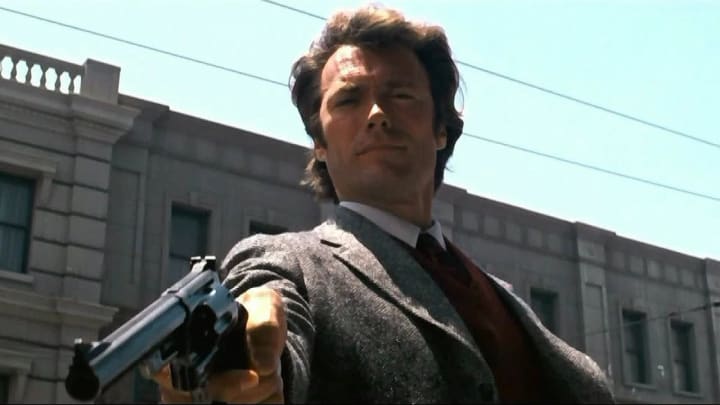
Now comes the moment most everyone remembers about Dirty Harry: the introduction of his gun, the famed 44 Magnum. As the bank robber lies on the ground inches from his shotgun and deciding if he can reach it before Harry shoots him in the head, Harry introduces the punk to the the most powerful handgun in the world and asks the now-legendary question of whether the guy thinks Harry has any bullets left: “Do you feel lucky, Punk?”
I know that’s not the exact line, I’ve written a shorthand, Mandela Effect version of the line, but that’s not really the point here. All of this - all of the shooting, the violence, the mugging by Eastwood as he delightedly talks about his gun - what does any of this have to do with the story being told in Dirty Harry? By this point, dialogue has already happened to establish that Harry Callahan is a cop who plays by his own rules.
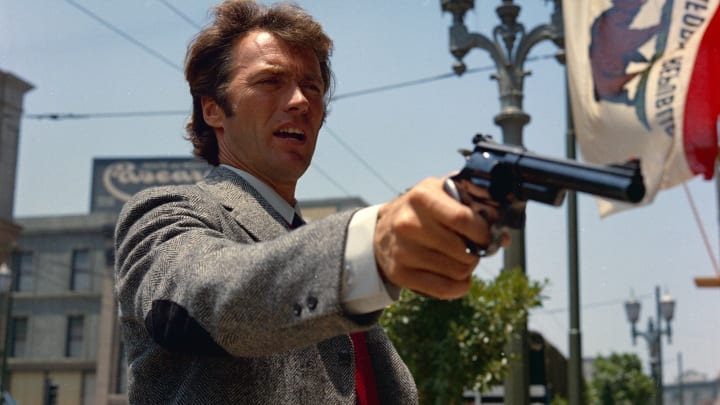
The mayor, played by famed college dean John Vernon, already briefly has mentioned Callahan’s reputation for chaotic case work. We know Callahan has a reputation so a scene burnishing that reputation is a little redundant. So what does the scene tell us about Harry Callahan? He’s impervious to bullets? That appears to be a reasonable assumption as Harry took a long-distance shotgun blast to the leg and barely felt it, like a breeze had blown hard sand at him.
Harry Callahan is tough and doesn’t feel pain? Harry has a strange sense of humor? After the aforementioned punk has passed on testing his luck, Harry points his 44 Magnum back at the man’s face and pulls the trigger to reveal that the gun was indeed empty. All of these things are seemingly true based off of the evidence but again, what was the point of the scene?
Much of what director Don Siegel does in this scene and throughout the length of Dirty Harry is hold our hand and guide us as audience members. This is the indication of a director who doesn’t trust the audience. Siegel doesn’t think that we are going to be able to determine that Harry Callahan is a detective, that he has strong investigative instincts and is very observant. Thus he includes a scene where Harry reveals his observational intelligence.
Of course, we’ve already witnessed from the previous scene that Harry deduced the nest of a shooter who had murdered a woman from a long distance on top of a skyscraper. Harry wasted no time in observing the exact spot from where the shooter had done the deed, found the shell casing from the shooter's gun and found the note the killer left behind to set up the plot. Thus, once again, the bank robbery scene is redundant.
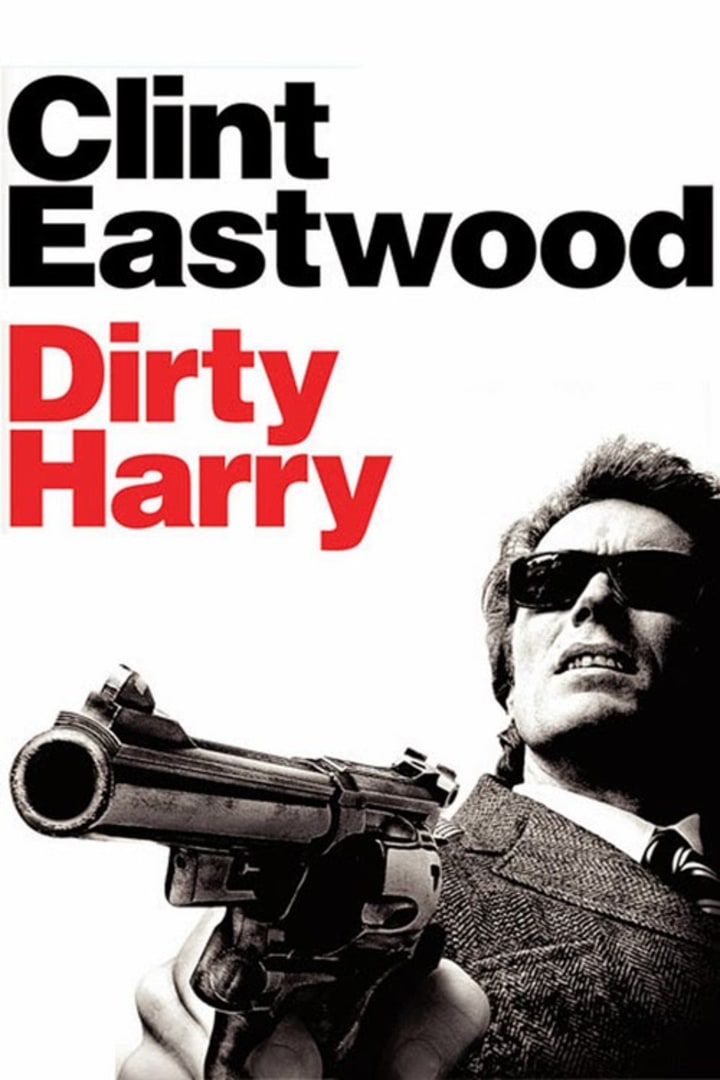
The director included this scene because he thought it was cool. That’s it. That’s the only reason. History appears to vindicate this. What else do you remember about Dirty Harry? Most surely you don’t remember that the scene is redundant or insultingly obvious in a heavy-handed setup. Most people remember those iconic lines. Decades later, Dirty Harry still remains a cultural touchstone because of that monologue.
Historically, we might not have much memory of Dirty Harry without that line. You will have to decide for yourself if that makes it worth being in the movie, or whether the director just, well, got lucky.
Thank you to fellow film critic and member of the Broadcast Film Critics Association, Linda Cook, for editing work on this and providing remarkable insight.

About the Creator
Sean Patrick
Hello, my name is Sean Patrick He/Him, and I am a film critic and podcast host for the I Hate Critics Movie Review Podcast I am a voting member of the Critics Choice Association, the group behind the annual Critics Choice Awards.





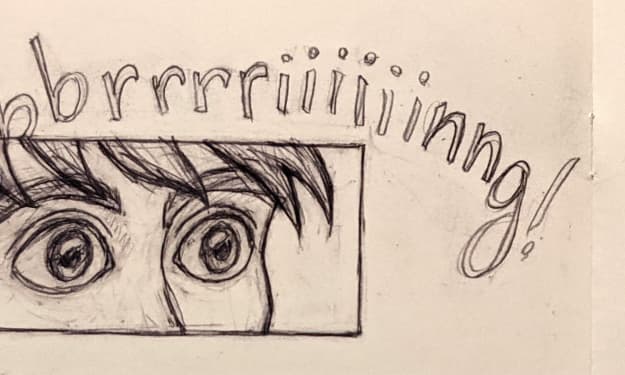
Comments
There are no comments for this story
Be the first to respond and start the conversation.